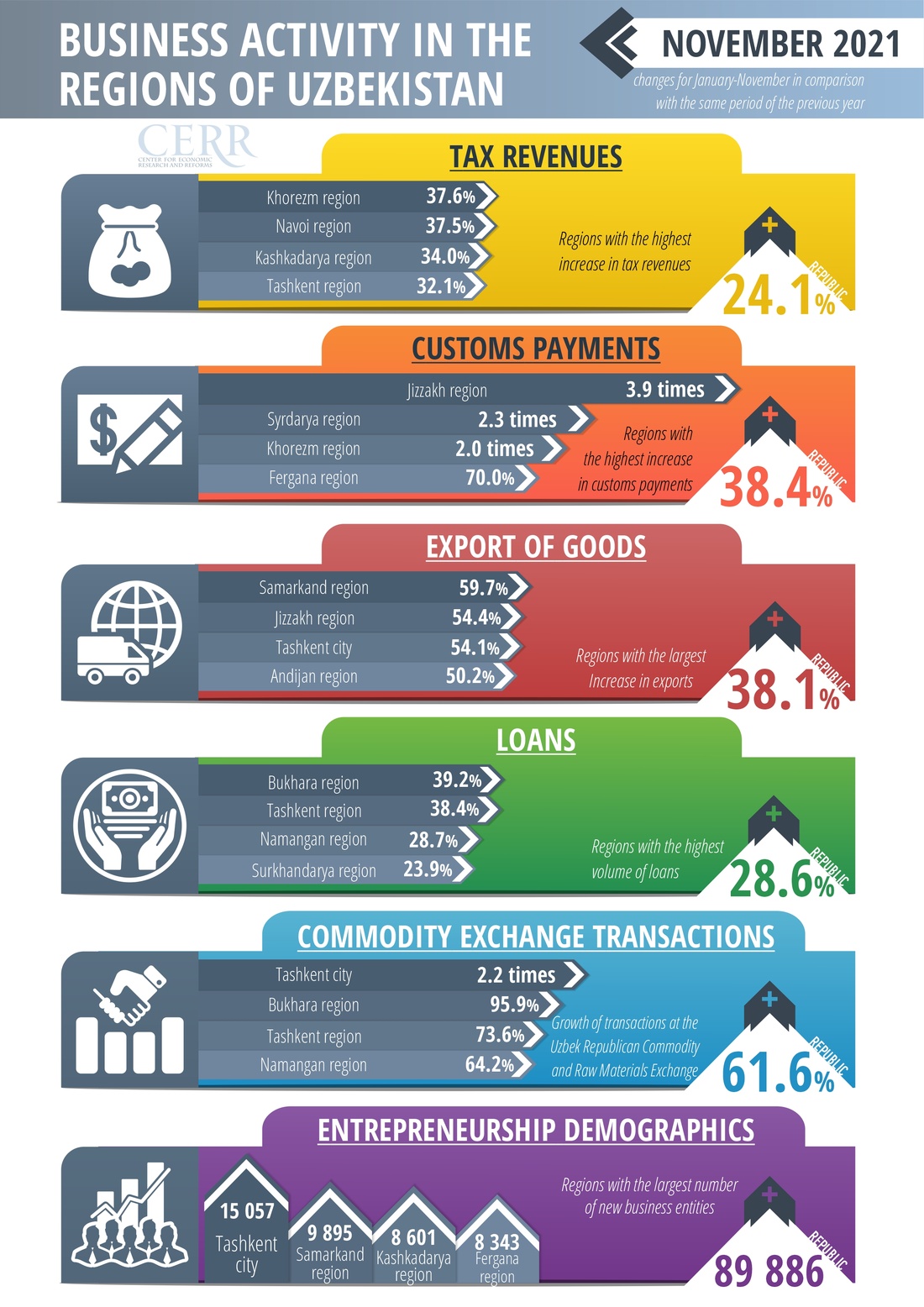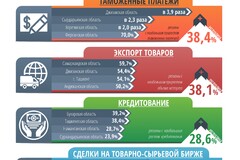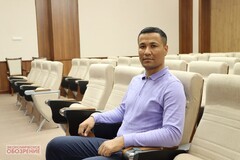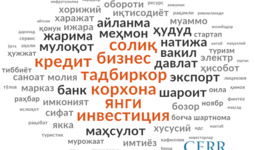A favorable political and legal environment is a prerequisite for implementing macroeconomic stability, attracting investment in regions and industries, and enhancing entrepreneurial activity in the context of the economy's rapid development. It promotes investment in important industrial and social projects, expands opportunities for innovation, and improves the quality of economic and social development.
Thus, the current conditions of world investment policy require significant efforts to attract investment in developing economies, including Uzbekistan, by creating the most favorable investment climate. In this regard, the implementation of successive reforms in various sectors of the economy, stimulating the process of creating the internal conditions necessary for doing business and attracting investments, provided by law, were recognized as the basis of the economic achievements that are currently being observed in Uzbekistan.
To assess the economic situation in the country, specialists from the Center for Economic Research and Reforms (CERR) conduct monthly monitoring of the state of business activity at the regional and district levels.
Analysis of business activity in the context of the regions of the Republic of Uzbekistan is monthly calculated by CERR on the basis of operational data (monitoring in all regions of the republic, according to the data of the State Customs Committee, State Tax Committee, Central Bank and UzEX).

The monitoring results showed that the volume of tax revenues of the republic in the period from January 1 to November 31 of this year increased by 24.1% compared to the same period of last year. At the same time, a significant increase in tax revenues was noted in Khorezm (by 37.6%), Navoi (by 37.5%), Kashkadarya (by 34.0%), Tashkent (by 32.1%), Samarkand (by 31, 4%) regions and Tashkent city (by 30.4%). The increase in tax revenues is associated with an improvement in the business environment through improvements in the tax system.
The country is taking comprehensive measures to improve tax policy, increase the efficiency of tax administration, consistently reduce the tax burden, simplify the tax system and radically reduce tax reports.
As a result of the introduction into practice of the Concept for improving the tax policy of the Republic of Uzbekistan, the tax burden on the wage fund has been reduced, taxes received from working capital have been optimized, mandatory contributions to state trust funds have been canceled, and the rate of corporate income tax has been reduced. Over the past five years, 114 licenses and permits have been canceled, a notification procedure has been introduced for 33 types of activities. The procedures for obtaining permits have been simplified and, on average, the terms for their issuance have been reduced by 2 times.
Receipts from customs payments for the analyzed period increased by 38.4%. The largest increase in the volume of receipts was noted in Jizzakh (3.9 times), Syrdarya (2.3 times), Khorezm (2.0 times), Fergana (70.0%), Samarkand (64.4%) regions, in the city of Tashkent (by 32.9%) and in the Republic of Karakalpakstan (by 45.1%).
The increased volume of imports witnesses to the growing domestic demand and consistent reforms aimed at increasing the efficiency of the activities of state customs authorities using modern information and communication technologies. Taking into account the current investment environment, a large proportion of imports consist of machinery and equipment that are used to build and upgrade production facilities, which in the long term will contribute to economic growth, including increased exports of finished goods. In addition, the abolition of the exemption from customs duties for participants in the free economic zone from October 1, 2020 in accordance with the Decree No. PF-4853 dated 10/2016 led to an increase in customs duties.
According to the State Customs Committee, the volume of exports of goods since the beginning of the year has increased by 38.1% compared to the same period last year. The growth in the volume of export of goods was provided in Andijan (by 50.2%), Samarkand (by 59.7%), Syrdarya (by 43.7%), Jizzakh (by 54.4%), Fergana (38.5%) regions , in Tashkent city (by 54.1%) and in the Republic of Karakalpakstan (by 19.4%). Export guidelines point to the need for interaction with international economic organizations.
In this way, increasing the rate of export of Uzbekistan indicates the degree of participation of the state in foreign trade integration. Recently, the country has initiated new ways to stimulate business activities aimed at exporting industrial products, food products, chemicals and agri-food products.
But, despite this, at present, more than half of commodity exports (excluding services) of Uzbekistan are raw materials (gold, natural gas, non-ferrous metals, cotton fiber, etc.), which indicates the raw material dependence of the economy, which can negatively affect on economic growth. The volume of loans issued by commercial banks for the analyzed period increased by 28.6%. The largest growth in the volume of loans issued is observed in Tashkent (by 38.4%), Bukhara (by 39.2%), Namangan (by 28.7%), Surkhandarya (by 23.9%), Samarkand (by 22.4%). ) regions and in the Republic of Karakalpakstan (by 8.9%).
The increase in the volume of loans issued by commercial banks indicates a gradual improvement in the investment environment and the activities of business structures.
These changes include an increase in the number of entrepreneurs in going concern and an increase in compensation for interest payments on loans to entrepreneurs. During this period, 89,886 new business entiies were created, the largest number of which was registered in Kashkadarya (8,601), Samarkand (9,895), Fergana (8,343), Tashkent (7,260) regions and in Tashkent (15,057). The volume of transactions at the Uzbek Republican Commodity and Raw Materials Exchange for the analyzed period increased by 61.6%. A significant increase in exchange activity is observed in Bukhara (by 95.9%), Tashkent (by 73.6%), Namangan (by 64.2%) regions and in Tashkent city (by 2.2 times).
The growth in the volume of transactions in these regions was ensured by an increase in the sale of such goods as mineral fertilizers, cotton fiber, diesel, cement, gasoline, cathode copper, ferrous metals, technical cotton seeds and sugar. The increase in the volume of transactions on the stock exchange indicates an increase in the activity of legal entities and an increase in the income of individuals, which contributes to an increase in business activity through demand factors.
In recent years, the introduction of some of the tools that were used as the main factors of economic activity in our country has significantly expanded, and appropriate strategies and work are continuing in this direction. The main macroeconomic indicators show a significant positive recovery from the significant economic downturn caused by the global pandemic. In short, positive trends were identified as a result of measures taken to develop business entities, support individuals and create favorable conditions for doing business.
The gradual economic recovery in 2021 is also evidenced by the results of a survey of enterprises to assess the state of the business climate in Uzbekistan, which is carried out monthly by CERR. The study reflects business sentiment across the country.
Center for Economic Research and Reforms
Shokhrukh Bobozhonov























leave a comment